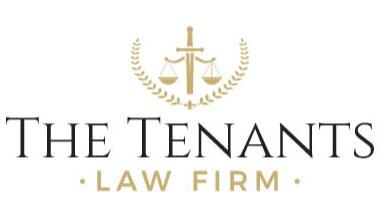What is false advertisement for housing?
Your rent, just like a product you might buy at the store, might be falsely advertised by a landlord or property seller who is trying to exploit tenants for financial gain. False advertisements for rent can include misleading prices, fake advertisements, “bait and switch” scams, or even an omission of important information.
Can you take legal action if your rent was falsely advertised?
Depending on the circumstances, you may take legal action if your rent has been falsely advertised. In most states you can sue for the damages incurred due to the false advertisement, but even in states without false advertising laws, you may be able to sue for common-law fraud. At the federal level, deceptive business practices are illegal due to the Federal Trade Commissions Act.
In California, Business and Professions Code § 17500 protects against any practice which is “misleading, and which is known, or which by the exercise of reasonable care should be known, to be untrue or misleading.” This makes it against the law to misrepresent anything in real estate intentionally or by lack of proper caution.
What counts as false advertising for a tenant?
There are many situations that might fall under the scope of false advertising. It can range from a small misrepresentation — such as an exaggeration on the square footage of the property — to a scam altogether in which the listed property is nonexistent:
● A seller lists a house at a lower price than they will sell it for (“bait and switch”)
● A landlord neglects to inform potential tenants of certain costs associated with their rent
● The condition of a property is misrepresented as much better than it actually is
● A landlord advertises a rental unit as having features or amenities that it does not have
An advertisement counts as false or misleading when it is likely to deceive the general public. This is one of many reasons that false rental or housing advertisements can be arbitrary, so it’s important to have a lawyer on your side.
What will happen if you sue for false advertisement?
In California, false advertising in real estate may result in a misdemeanor, which is punishable by imprisonment up to six months, as well as the possibility of a fine up to $2,500. As the plaintiff, you will have to prove that you were justifiably misled by a material lie, and that you suffered financial losses as a result.
If other people fell victim to the same false advertisements as you, the situation may be liable for a class action lawsuit, which would strengthen your case that the misrepresentation of the real estate would be likely to deceive the general public.
How do you avoid false advertisements in housing?
Be cautious before signing onto a housing contract, as it might be falsely advertised. For example, don’t sign a lease for a rental unit if the landlord refuses to let you see the property first. Additionally, prices that are much unlike the other listings in the area, or a multitude of grammatical errors on the description of the listing should make you wary.
However, if you do become a victim of false advertising, it’s a good idea to consult a lawyer. Tenants Law Firm is here to help. Our team specializes in these cases to protect you against financial losses from real estate misrepresentation. If you think you are entitled to a false advertising lawsuit, contact us by calling (310) 432-3200 or by using this form.

